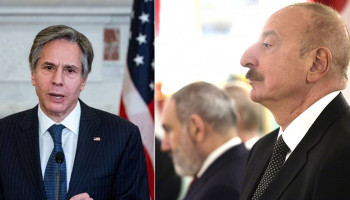US begins pulling military equipment from Niger ahead of withdrawal deadline
 The US began pulling military equipment and additional personnel out of Niger on Friday after waiting months for the ruling military junta to approve US military flights into the country, the US Department of Defense and the Department of National Defense of the Republic of Niger announced Saturday. The news comes ahead of a September 15 withdrawal deadline agreed to by the two countries. The US priority was first to remove sensitive equipment from Niger, a source familiar with the matter said. Last month, the US and Niger reached an agreement for the withdrawal of American forces from the country, giving the military four months to pull approximately 1,000 US personnel and military equipment from the West African nation. Niger had been a central hub from which the US carried out surveillance of violent extremist groups in the region, including the use of MQ-9 Reaper drones. The US also trained Nigerien troops. But the coup in Niger last July brought to a halt the training mission. The relationship between the US and the military junta grew increasingly strained as Biden administration officials called for a clear path to free and fair elections. US personnel who left before the agreement had taken commercial flights out of the country, US officials said. As the US has prepared to withdraw from the country, Russian forces have moved in, operating at the same base as US forces. The arrangement, which put the two militaries in relative proximity, was a point of contention between the US and Niger, and it further underscored concern that the country’s military junta was turning toward the Kremlin. Russia and Niger agreed to strengthen their military ties in January, Russia’s Defense Ministry said at the time. Russia has worked hard to expand its influence in the region. This week, Russian Foreign Minister Sergey Lavrov visited Burkina Faso and said Russia would increase the number of military instructors working in the country. In early March, the head of US Africa Command, Gen. Michael Langley, warned Congress that Russia is aggressively working to expand its footing among African countries, leaving several “at the tipping point” of falling under its influence. As late as last month, some US defense officials expressed a measure of confidence that future cooperation with Niger was possible, based on years of work together countering extremist groups in neighboring countries like Mali and Burkina Faso. That hope has subsided; another official told CNN it’s unlikely the US will continue any meaningful relationship with the current Nigerien leadership, especially while Russian influence continues to expand in the region. |


















